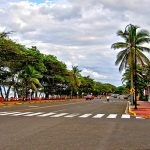26 cases of leptospirosis registered in one month

Public Health calls to avoid contact with contaminated water to prevent contagion.FILE/LD
In the last four weeks, the country reported 26 probable cases of leptospirosis, a disease transmitted to humans by contact with urine from contaminated animals. The Ministry of Public Health reminds the population of the importance of avoiding contact with contaminated water during the rainy season.
Of that number of reports, four probable cases were reported during the last week from the municipalities of Moca, Mao, and San José de Ocoa. However, the report indicates that in the previous month, there was a 69% decrease in cases compared to the same period last year.
The provinces with the highest cumulative incidence according to their population are María Trinidad Sánchez, San José de Ocoa, Hermanas Mirabal and Santiago Rodríguez.
Less dengue
Public Health also reports a 57% reduction in suspected cases of dengue reported to the system to date, compared to the reports of epidemiological week number 43 last year.
In the last three weeks, 27 cases of dengue were reported, for a cumulative total of 1,203 confirmed cases.
Regarding the disease, the director of the Dr. Hugo Mendoza Pediatric Hospital (HPHM), Dhamelisse Then, reported that this center has treated 329 cases of dengue so far this year, a significant reduction of 86% compared to the 2,416 treated last year.
Malaria
During the last week, 10 confirmed cases of malaria were reported, for a cumulative so far this year of 887 cases, of which 594, or 67%, are of Dominican nationality and 290, for 33%, are Haitians. One of the cases was a patient from Equatorial Guinea, another from Guyana and one from the Republic of Congo.
Men and the age range of 15 to 34 years are the most affected.
Recommendation
To avoid leptospirosis and other diseases, the Ministry of Public Health recommends avoiding contact with contaminated water, eliminating garbage, controlling rodents, washing containers well, and protecting drinking water by boiling it before consumption.
In addition, proper hand washing should be practiced, food should be cooked well, and fruits and vegetables should be washed correctly. It is also essential to cover the stored water and add chlorine to prevent the proliferation of pathogens.
Health facilities should ensure early notification of suspected cases and strengthen epidemiological surveillance. These actions are crucial to protect public health during heavy rainfall and minimize health risks.
















